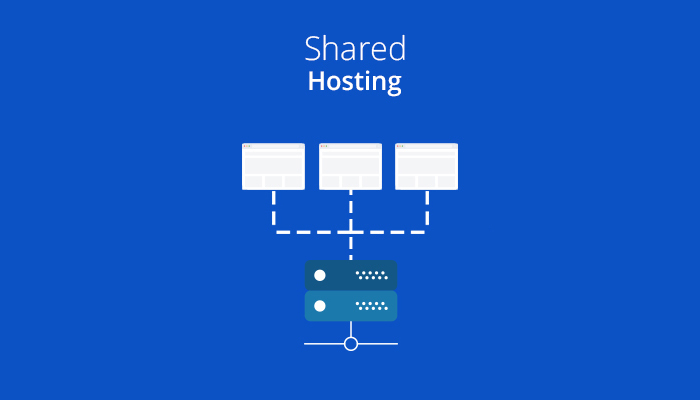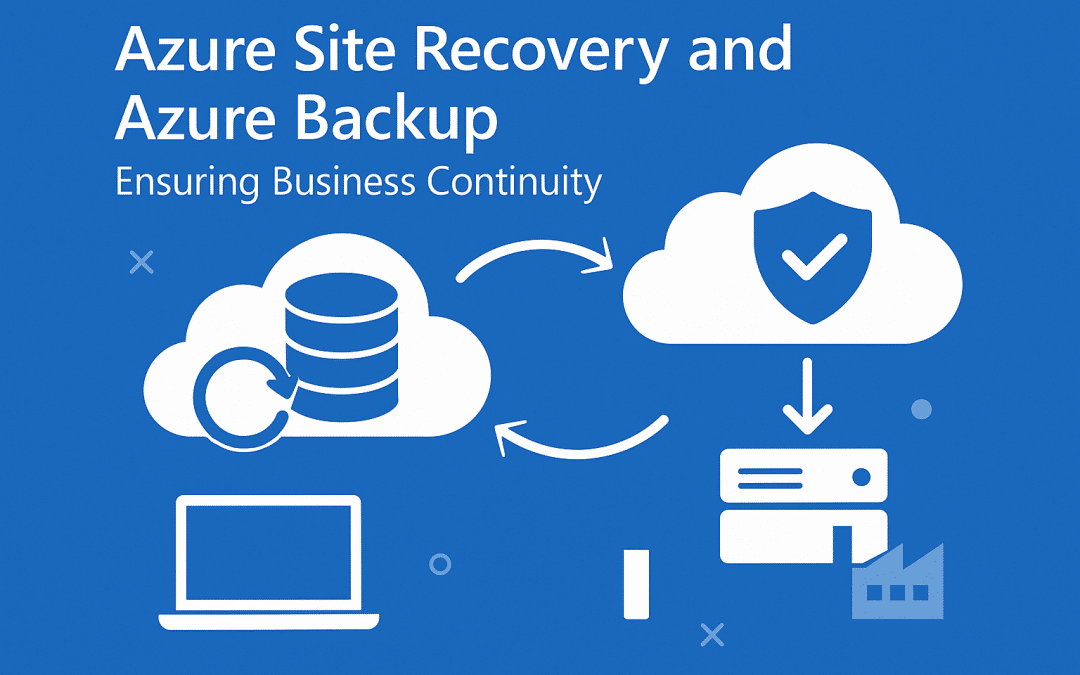The 6 Best Types of Web Hosting to Consider in 2022
Read this article to learn about, ‘The 6 Best Types of Web Hosting to Consider in 2022’.
Choosing the right web hosting is essential when developing a website.
To get started, it’s important to familiarise oneself with the various web hosting options available. In this approach, you may determine which course of action is most beneficial to your website.
Please take your time with this. The future of your site is at risk if you pick the wrong web hosting service.
Perhaps you’re wanting to move web hosts because you’re unhappy with your present provider. Your interest in that topic is what led you here.
Learn all you need to know about web hosting with this comprehensive guide. When you know what you’re looking for in a web host, you can compare prices and features to find one that’s right for you.
What is Web Hosting?
Servers are powerful computers that store web pages and data associated with them.
Your web host is the gateway via which you access all of the files that make up your website. Everything is included, from files and texts to photographs and videos.
The data centers where servers are housed are owned and operated by third-party web hosting providers.
Web hosts supply the hardware and storage space necessary to make your website accessible over the World Wide Web. That way, people can easily find your website via online searches and peruse its pages.
The 6 Best Types of Web Hosting to Consider in 2022
Every website is different. This is why there are various servers available: to accommodate individual users’ preferences.
Sometimes a single server will host several different domains. While others share a server, other websites have their own.
Six major categories of web hosts are there:
Shared hosting
Virtual Private Server (VPS) Hosting.
Dedicated hosting
Cloud hosting
WordPress hosting
Reseller hosting
Within these larger categories, you’ll find a wide variety of hosting options, including WordPress hosting and reseller hosting. The next few sections will describe each of the six major categories of web hosting services.
Your web host is the gateway via which you access all of the files that make up your website. Everything is included, from files and texts to photographs and videos.
The data centers where servers are housed are owned and operated by third-party web hosting providers.
Web hosts supply the hardware and storage space necessary to make your website accessible over the World Wide Web. That way, people can easily find your website via online searches and peruse its pages.
How do you know which hosting option is best for your website?
The speed, security, scalability, and ease of administration of your website are all affected by the server type you go with.
The kind of your website and the volume of its visitors will also factor into your choice.
As an illustration, the hosting requirements of a tiny personal blog with 5,000 monthly visitors and those of a significant eCommerce site with 250,000 monthly views are very different.
It’s also important to remember that there’s a wide range of prices for the various hosting plans out there. Because of this, you must locate a solution that is financially feasible for you.
Below, I’ve described and explained your six distinct choices in web hosting. With this data at hand, you can make an educated decision about the kind of hosting web service that will best suit your needs.
- Shared Hosting
When it comes to hosting your website, shared hosting is the bare minimum. It’s perfect for starter sites due to its low price and high efficiency.
Websites that opt for shared hosting will, as the name suggests, share server resources with other hosted websites. Most websites don’t require a dedicated server, thus this solution works nicely.
This is why shared hosting can keep its low prices. For the site host, resource sharing means lower costs.
Therefore, depending on the characteristics of the hosting package, each website hosted on the server will have varying degrees of access to the server’s resources.
Consider it the same as if you were sharing an apartment. While you have your private sleeping quarters, you and your housemates will share the rest of the house, including the kitchen, living room, and bathroom.
Unfortunately, there are drawbacks inherent in the practice of sharing a server with multiple websites. Your site’s speed may suffer if another site hosted on the same server suddenly has a significant increase in visitors. You can do nothing to prevent these outcomes.
As a result, while shared hosting is a good option if you’re on a tight budget, it won’t provide you or your website’s visitors with the best possible hosting service.
Who is Shared Hosting for?
For inexperienced webmasters and smaller websites, shared hosting is an excellent option. It’s cheap and doesn’t call for too much technological know-how to get going.
For those who only need to host a single website or are on a strict budget, I strongly suggest shared web hosting. Sharing a server’s resources is a terrific option for bloggers and small company owners. This hosting model is suitable for any website that does not require a lot of user participation or a lot of server space.
Sharing a server with other websites is a great way to cut costs if you aren’t expecting more than 10,000 or 20,000 visitors per month to your website.
The benefits of a shared web host:
a) Affordable web hosting plans have become the norm.
b) Very simple to put up.
c) It’s not necessary to have any technological expertise.
d) Perfect for novice webmasters and simple web pages.
Disadvantages of shared web hosting:
a) Hosting multiple websites on the same server.
b) You can’t help the way things are performing right now.
c) Inconsistent availability and slower load times.
d) Irreducible in size.
2. VPS Hosting
Virtual Private Server is an abbreviation for that term. If you’re looking for a hosting service that’s superior to shared, look no further. It’s customary for website owners to switch to a VPS when their traffic demands exceed the limits of their shared plan.
When you opt for a virtual private server, your website will still be hosted alongside others on the same physical server. You’ll still be sharing it with a few websites, but that number is far smaller.
For this reason, the primary server is “virtualized,” or partitioned into several smaller servers. Websites can tailor these virtual servers to their own needs.
Root access is available as a paid add-on to your VPS hosting package, allowing you to install and manage any software or settings you see fit on your server.
With additional power at your disposal, your site’s performance will greatly improve. Because of this, page refresh rates and overall uptime will improve. You may rest easy knowing that an external source can’t bring your site to a halt.
As we’ll see in a moment, a dedicated server is unnecessary for the vast majority of websites. However, virtual private servers (VPSs) offer many of the advantages of dedicated hosting at a far lower cost.
Renting a VPS is similar to getting your residence. There won’t be any roommates to share the kitchen, bathroom, living room, or other communal areas with. There is now a great deal more leeway for you to make use of the area as you see fit.
There is a catch, though: you’ll have to share some of the building’s amenities with the other apartments. That means there will still be limitations.
Who is VPS hosting for?
Virtual private server hosting is ideal for companies of any size that can’t afford any downtime on their website. Webmasters whose sites have beyond the limits of a shared hosting plan will find this a fantastic alternative.
Website owners who are technically skilled and who wish to make modifications to the server’s setup may benefit from using a virtual private server.
Video and image-heavy websites can benefit from having their virtual private server. Virtual private servers (VPSs) are preferable to share hosting environments for interactive websites with large files.
Advantages of Virtual Private Server Hosting:
a) Resources on a separate server just for you.
b) Possibility to alter the server to your liking.
c) Improved availability and page load times.
d) It’s less expensive than buying a dedicated server.
Disadvantages of virtual private server hosting:
a) Colocation means that multiple websites are using the same server.
b) Setting up a dedicated server is more complicated than setting up a shared server.
c) Still has restrictions on how much you can alter.
3. WordPress Hosting
WordPress hosting is tailored specifically for use with WordPress.
It’s possible to choose between two distinct WordPress hosting models offered by various companies.
Affordable WordPress shared hosting
WordPress hosting with management
Similar to standard shared hosting, WordPress may already be installed on a shared WordPress server.
Improved security, server caching, staging, and quicker load times are just a few of the additional benefits you’ll enjoy with a managed WordPress host.
The top WordPress hosting services also include instant WordPress installation.
WordPress websites benefit from the extra security measures often included in WordPress hosting. Websites built with WordPress are more vulnerable to hacking because it is the most popular content management system (CMS) in use. So, having that extra safety is a huge plus.
Who is WordPress hosting for?
Users using WordPress should utilize WordPress hosting. You should consider this web host if you want your hosting to work best with WordPress.
Benefits of WordPress Hosting:
a) Customized to work best with WordPress.
b) WordPress setup with a single click.
c) WordPress sites now have better protection.
Disadvantages of WordPress hosting:
a) Suppressed discretion and mobility.
b) Some glitches are inevitable during updates.
c) Cooperating with other WordPress websites to share resources.
4. Dedicated hosting
A dedicated server is largely viewed as the top web hosting option. That’s because your server is dedicated solely to your needs. Dedicated hosting often offers more advantages, such as higher uptime and quicker speeds.
The drawback is that this is the priciest option for site hosting.
Website speed will be optimized because you won’t be competing with other sites for server space or other resources.
When hosting on a dedicated server, webmasters have full administrative access to the server’s configuration options. In other words, you get to choose the apps, settings, and configurations that best suit your needs.
It’s reasonable to anticipate near-perfect server availability and blisteringly quick page loads from a dedicated server. Not even the traffic from competing sites will slow you down.
Having a dedicated server is akin to being a homeowner. Everything from erecting a fence or planting a tree to laying a patio or remodeling a kitchen is entirely up to you.
Who is dedicated hosting for?
Dedicated hosting is the gold standard for large corporate websites. That’s a lot of traffic — over 100,000 uniques every month — and a lot of money in the bank to pay for the server.
If you’re still just getting a few thousand unique visitors each month, you shouldn’t even think about upgrading your hosting to anything like this.
Because of the increased level of customization and control that comes with a dedicated hosting plan, it is highly recommended for large organizations and online marketplaces. A dedicated server is the best option for highly confidential websites like those that handle sensitive financial or medical information.
Different levels of administration are available for dedicated servers. One option is to hire a hosting company to handle server management, but you also have the option of handling it yourself. Installing updates and keeping an eye out for bugs is part of being responsible for the server’s upkeep when you’re operating it yourself, but it’s also a drawback.
When budgeting, a dedicated server should only be considered. If you’re just getting started with your website, a dedicated hosting package will likely be too expensive for you. It’s possible to spend $2,000 monthly on these servers.
The benefits of dedicated hosting include:
a) You have full administrative privileges on the server.
b) Unlike some other websites, ours does not share its resources.
c) Protection at the highest level.
d) Quick response times, reliable availability, and top-notch functionality.
The disadvantages of dedicated hosting:
a) Highest-priced web hosting plan available.
b) Needs specialized training or knowledge.
c) There is no one else to blame but yourself.
5. Cloud Hosting
One may compare cloud hosting to a hybrid Virtual Private Server, except that it is more cost-effective.
Plans for cloud hosting typically include several separate remote servers. Various tasks are under the purview of each server. The network’s other servers will step in to handle extra work if one of the servers is compromised or experiencing technical difficulties.
That’s why many people prefer cloud web hosting over more conventional options.
When hosted on the cloud, your website will have less downtime and more predictable uptime. As always, your site’s performance and fluidity will be top-notch.
Scalability is one of cloud web hosting’s greatest advantages.
There is always a dilemma between server space and cost with conventional hosting. You don’t want to overspend on a plan with features you’ll never use, but you also don’t want your website’s performance to suffer because you went over your plan’s allotment of resources.
This is challenging to estimate accurately unless you have a crystal ball and know exactly how many people will visit your website every month.
However, gauging website traffic is an art rather than a science. It is excellent news that your site’s popularity will occasionally skyrocket. Make sure your strategy can handle the expected volume of visitors.
Consequently, cloud hosting is the best option for resolving this issue. The most useful features of the top cloud hosting plans are their scalability and flexibility in accommodating sudden increases in demand.
You only pay for the resources you use, and you can modify these settings at any time from your administrative dashboard.
Who is cloud hosting for?
For rapidly expanding corporate websites, cloud hosting is the ideal alternative.
If your site’s traffic is highly variable and you want to keep its growth consistent over the next few months to years, cloud hosting may be the best option for you.
A cloud strategy is a viable option for any website that receives more than 50,000 monthly page views. Cloud hosting is an alternative to virtual private servers for websites that have outgrown their shared plan and require an upgrade.
Advantages of cloud hosting:
a) Protection at the highest level.
b) Grow or shrink your operations when the need arises.
c) Less unplanned downtime.
Disadvantages of cloud hosting:
a) Oftentimes, prices will fluctuate.
b) Costs can balloon due to unpredictable traffic patterns.
c) You can’t change much of it.
6. Reseller Hosting
Providing hosting services to clients is called “reselling” or “reseller” hosting. Because of this, it is not something I would recommend to everyone. You should seek elsewhere if you want to build a simple website from scratch or if you want to host a website on your own.
However, you should investigate reseller hosting plans if you wish to offer web hosting services to other websites.
Quite simply, reseller hosting is a form of white label web hosting. Your business model involves acquiring hosting from a third party and reselling it to end users.
You, as the reseller, get to decide what prices your customers will pay. Since you’ll be spending the provider at a wholesale cost, you’ll have a great chance of making a profit.
Who is reseller hosting for?
Web design firms, freelancers, and solo developers make up the bulk of reseller hosting customers. In other words, they are businesses that already have a clientele in this market and would benefit from adding web hosting to their service offerings.
Customers will appreciate the convenience of being able to receive everything they need for their website from a single source, rather than having to go elsewhere to find things like web hosting.
Sustainability is a major benefit of the reselling business model. There is no guarantee that the client will always require your services after you’ve designed their website. But if you can get them to sign up for web hosting, you’ll have a reliable source of monthly money for as long as that site remains online.
If you don’t intend to handle at least ten distinct websites, reseller hosting isn’t for you. If not, you should probably not bother.
Advantages of Reseller Hosting:
a) Charge your customers anything you like.
b) Earn money that will keep on coming in.
c) Streamline the things you’re already doing.
Disadvantages of Reseller Hosting:
a) For your efforts to be profitable, you’ll need a large number of customers.
b) If problems arise, your customers will come to you.
CONCLUSION
What is the Best Hosting Type For Your Website?
Everyone has their unique answer to this question. What you require, how much you can spend, how much traffic you get, and what kind of website you have are all factors.
In this article, I included the items I consider to be the greatest in their respective categories.
Once you know what you require, you can choose the best suitable hosting type for your website.
Visit our website, 99rdp.com to learn about the different types of hosting services and RDP facilities available with us. You can buy admin RDP by viewing the pricing plans from this webpage.
You can read this article to learn about, the features of shared hosting.
You can also read this article to know about the features and functions that you get in RDP.









